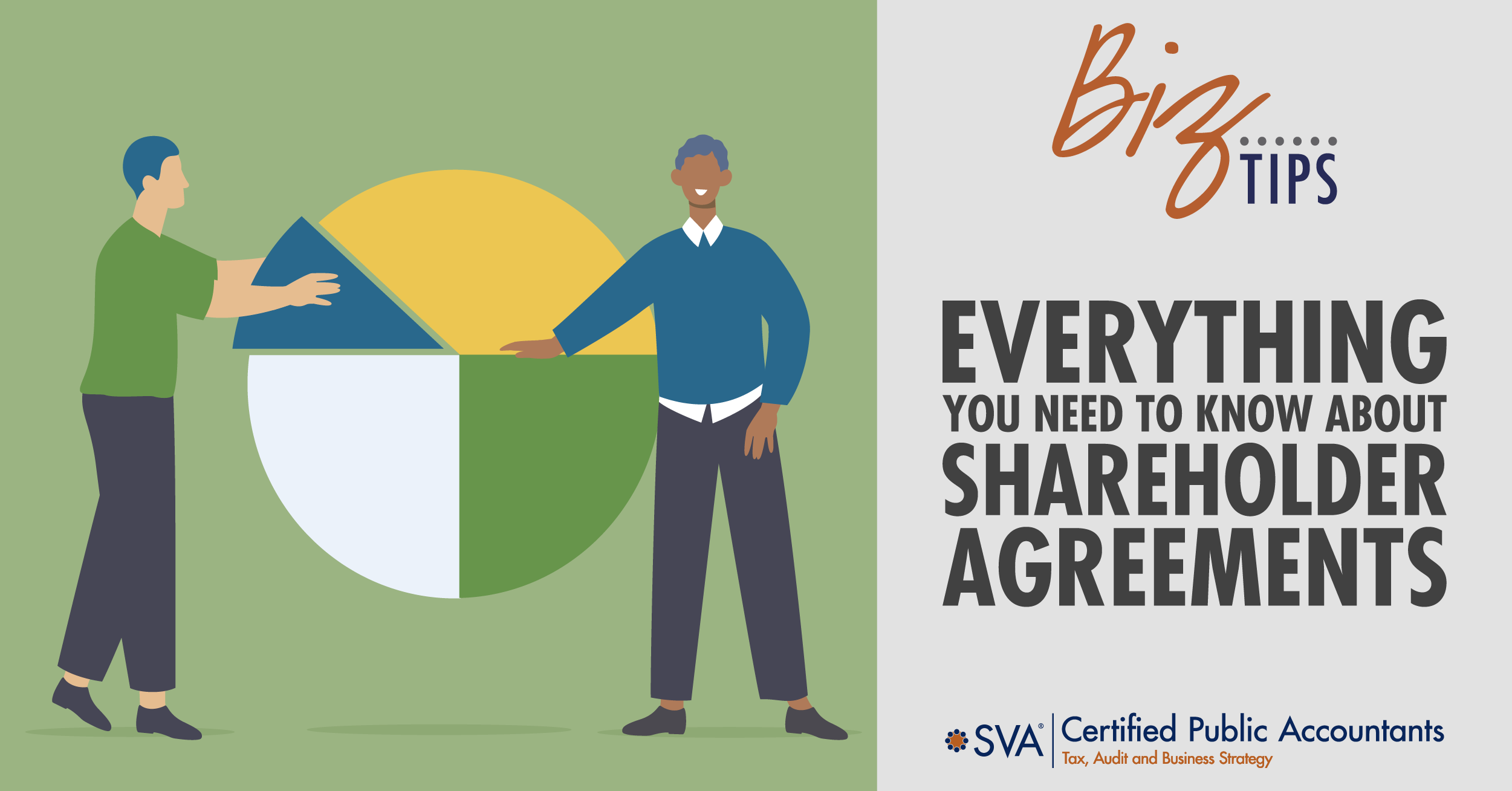| Highlights: |
- Explains what a shareholder agreement is and why it’s essential for defining shareholder rights, responsibilities, and dispute-resolution procedures.
- Outlines how to create a comprehensive agreement, including business description, decision-making rules, share transfer provisions, and legal review.
- Discusses when to review and update the agreement to reflect ownership changes, business developments, or legal/regulatory shifts.
|
Why are Shareholder Agreements Important?
Shareholder agreements are essential for several reasons.
First and foremost, they provide a clear and concise understanding of the rights and responsibilities of each shareholder. This can help prevent misunderstandings and disputes from occurring when shareholders have different expectations about the business.
For example, a shareholder agreement can outline the process for making significant decisions such as selling the business or issuing new shares. This can help to ensure that all shareholders are on the same page and that the business can operate smoothly.
Shareholder agreements are also crucial for protecting the business. They can establish procedures for resolving disputes among shareholders and can also provide for the buyout of a shareholder's interest in the event of a dispute. This can help to ensure that the business can continue to operate even if there is a disagreement among shareholders.
Additionally, shareholder agreements can provide for the transfer of shares in the event of the death or disability of a shareholder. This can help to ensure that the business can continue to operate even if there is a change in the ownership structure.
How to Create a Shareholder Agreement
Creating a shareholder agreement can seem daunting, but it doesn't have to be.
(Download Video Transcript)
The first step is to gather all of the relevant information about the business, including the names of the shareholders, the number of shares each shareholder owns, and the business's financial information. Once you have this information, you can begin to draft the agreement.
When drafting the agreement, it is vital to be as specific as possible. This will help to prevent misunderstandings and disputes later on. The agreement should clearly outline the rights and responsibilities of each shareholder, as well as the procedures for decision-making and dispute resolution.
It should also provide for the transfer of shares in the event of the death or disability of a shareholder and provide for the buyout of a shareholder's interest in the event of a dispute.
Once the agreement has been drafted, it should be reviewed by an attorney. An attorney can help ensure that the agreement is legally binding and complies with all relevant laws. They can also help to identify any potential issues that may arise and can provide suggestions for how to address them.
What Should Be Included in a Shareholder Agreement?
A shareholder agreement should include several key components.
(Download Video Transcript)
First, it should include a description of the business and its operations. This can include information about the business's products or services, target market, and competitive landscape.
The agreement should also include information about the shareholders, including their names, the number of shares they own, and their rights and responsibilities. This can include information about how decisions will be made and how disputes will be resolved.
The agreement should also contain information about the management of the business, including who will be responsible for day-to-day operations, how profits will be distributed, and how the business will be financed.
Finally, the agreement should include information about the transfer of shares. This can include information about how shares will be transferred in the event of the death or disability of a shareholder and how they will be transferred in the event of a dispute.
How Often Should Shareholder Agreements Be Reviewed and Updated?
Shareholder agreements should be reviewed and updated regularly to ensure they continue to accurately reflect the current state of the business and the shareholders' intentions.
(Download Video Transcript)
There are a few key events or circumstances that may trigger the need for a review and update of a shareholder agreement:
| Changes in Ownership |
If there are changes in the business's ownership structure (such as the issuance of new shares or the sale of existing shares), the shareholder agreement should be reviewed and updated to reflect these changes. |
| Changes in the Business |
If there are significant changes in the business (such as the introduction of new products or services, the expansion into new markets, or the acquisition of other companies), the shareholder agreement should be reviewed and updated to ensure that it continues to accurately reflect the current state of the business. |
| Changes in Laws or Regulations |
If there are changes in laws or regulations that affect the business (such as changes to tax laws or securities regulations), the shareholder agreement should be reviewed and updated to ensure that it continues to comply with all relevant laws and regulations. |
| Time |
Even if there are no major changes in the business or its ownership structure, it is good practice to review the shareholder agreement every 3-5 years or as per the requirement of the business's jurisdiction. This will ensure that the agreement is still relevant and that it accurately reflects the shareholders' intentions. |
It is important to note that it is always recommended to review the agreement with the help of a legal expert as they can advise on any changes that may be required to ensure that the agreement remains legally binding and enforceable.
Overall, the frequency of review and update of a shareholder agreement will depend on the business's specific circumstances and the shareholders' needs. By regularly reviewing and updating the agreement, businesses can ensure that it continues to accurately reflect the current state of the business and the intentions of the shareholders and that it remains legally binding and enforceable.
© 2023 SVA Certified Public Accountants

